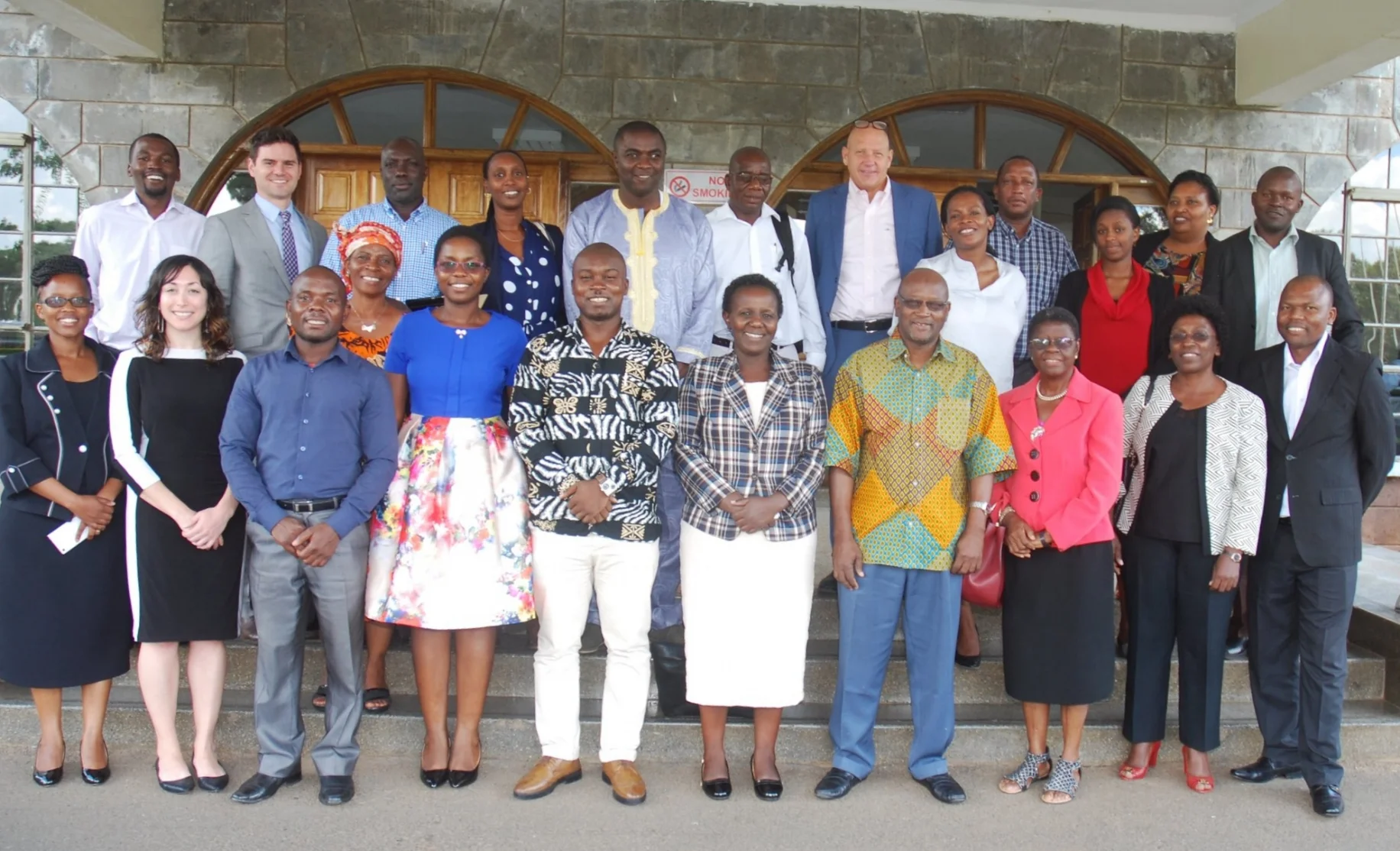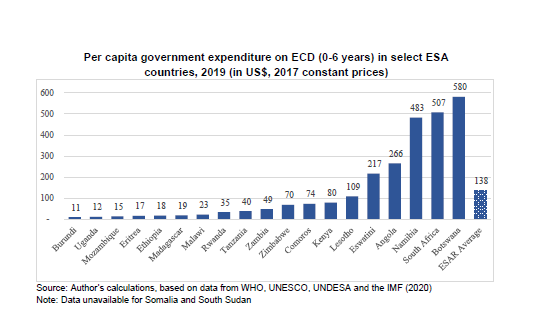“Older siblings engage in higher levels of child stimulation compared to either guardian/parents”
ACTION NEEDED TO PROTECT THE ENVIRONMENT FOR YOUNG CHILDREN NOW & FOR THE FUTURE GENERATIONS
Globally, almost every child on earth (99%) is exposed to at least one major climate and environmental hazards, shocks, and stress. Africa, despite its low contribution to greenhouse gas emissions, remains the most vulnerable continent to climate change. Indeed, seven of the 10 countries that are most vulnerable to climate change are in Africa exposing close to 490 million children in 35 African countries to highest risk of suffering the impact of climate change. As a build up to the 27th session of the Conference of the Parties (COP 27) to the UNFCCC that will take place in Sharm El-Sheikh, Egypt, read more about the actions needed to protect the environment for young children now and for the future generation. read more…
Interventions that Matter Start with Local Cultures: Issues and Strategies in Early Childhood Care and Education Interventions in Africa
Interventions that Matter Start with Local Cultures: Issues and Strategies in Early Childhood Care and Education Interventions in Africa
Child development is a biocultural project, as caregivers seek to raise their children to be successful in their unique cultural environment. Developmental milestones, dynamics, and pathways vary across cultures. As such, early childhood care and education (ECCE) programs have a responsibility to ensure relevance to, and ownership by, beneficiary children and caregivers. The rise of so-called global frameworks for ECCE often inadvertently serve to characterize communities in non-Western, Educated, Industrialized, Rich, and Democratic (WEIRD) countries (and in Africa in particular) as lacking conducive home environments and knowledge to support optimal child development. The research underpinning these frameworks largely originated from WEIRD contexts. We assert that basing ECCE programming on these frameworks neglects indigenous wisdom and replicates cultural imperialism. Community ownership in ECCE programming helps promote respect for human agency of the beneficiaries, avoid colonialism of concepts and procedures, build upon local resources, and meet real community needs. This ultimately bolsters the success and sustainability of ECCE programmes. Read more…
A call for stories: Implementation of childcare care practices
Closing date: Friday 23rd April 2021
The African Early Childhood Network (AfECN) is documenting childcare practices across the African region. This multi-country documentation aims at drawing attention to progress made, programme challenges, opportunities, and gaps in designing and implementing childcare programmes for children under age three (3) years. These efforts are aimed at shining a spotlight on the areas that need more attention and intervention by the early childhood development community and development partners.
Still interested? We invite you to share your journey, regarding how you have designed and implemented child-care programmes in your community and beyond. This is a chance to have your voice amplified nationally, regionally, and globally through AfECN platforms. The stories will be disseminated through our new and exciting Knowledge hub, a platform where you can find ECD materials and meet like-minded individuals and organizations.
Please submit your story to info@afecn.org by Friday 23rd April 2021. AfECN’s team of experts will then schedule a 20 minutes’ follow-up call with you/your representative to ensure that your story is well documented. Please indicate which day and time would best suite you for the follow-up call between 26th – 30th April, as you submit your childcare practice or story.
Please use the following key questions to guide the sharing of your story. Kindly keep your submission to a maximum of 650 words (one to three pages transcribed in word, single-spaced in font size 12), in the language you are most comfortable with
English French
Young children in Kenya prisons making headlines
PRISON CHILDREN Over 200 children in prisons and cannot be separated from their mothers
There are at least 200 children aged below 4, who were either born in prison or are still too young to be separated from their mothers who are serving their sentence. Children in prison have often been referred to as forgotten victims of crime, and the invisible victims of crime and the penal code. At the Lang’ata women’s prison, a daycare centre is offering a conducive environment for children in their early stage of development. One which shields them from the dangers of being raised solely in the environment behind bars.
Courtesy Citizen: Dorcas Wangira dissects the new report: victims of the penal code
Early Years Matter - Video
A staggering 2 out of every 3 children in Africa live in extreme poverty with inadequate nutrition, in unstable communities, lacking social services for family and caregiver support. These children suffer poor developmental outcomes, reduced productivity and are less able to help their own children grow and develop.
Let us change this story by collaborating with all key stakeholders to:
Build on positive community and cultural practices that support child development
Strengthen service delivery systems and co-ordination across sectors at all levels
Develop and implement policies that support nationwide access to quality services for all children.
There is much to be done and it begins with each one of us
The AfECN Secretariat sincerely appreciates our supporters for their continued support: Conrad N. Hilton Foundation, The Open Society Foundation, UNICEF and WHO
“Quantifying Heckman: Are Governments in Eastern and Southern Africa (ESA) Maximizing Returns on Investments in Early Childhood Development?”
Global Launch Smart Scaling of Pre-primary Education: Launching the Global ECE Accelerator Toolkit
Smart Scaling of Pre-primary Education: Launching the Global ECE Accelerator Toolkit
The importance of quality early childhood education is reflected in the Sustainable Development Goals, as target 4.2 calls for access to quality pre-primary education for all children. To achieve this ambition, one vital solution is to ensure that pre-primary education is systematically integrated into the national cycles of education sector planning and policy implementation.
This webinar, co-organized by the Global Partnership for Education (GPE), UNICEF and ECDAN, will provide insights into this innovative approach and launch the global ECE Accelerator Toolkit to support countries with effective planning and implementation of ECE programs. The vision is to engage more countries and partners in this approach, put to use the global toolkit and learn from countries’ ongoing efforts and successes.
Register here for the event.
Building Back Better: Stories of Hope And Resilience 6
Governments around the world should pay attention to play. By doing so, they get to do the proverbial ‘killing of two birds with one stone’. Play is the right of the child, supported by both the African Charter on the Rights and Welfare of the Child and the international Convention on the Rights of the Child. It’s also a pathway to boosting children’s development, promoting lifelong… read more
WEBINAR SERIES ON PLAYFUL PARENTING ONGOING
This will be a three-part webinar series on Playful Parenting. Each webinar will be conducted from 3 pm - 4:30 pm EAT and translated accordingly in
English, Portuguese and French, as follows:
• In partnership with the CSO Forum AfECN will launch the first of the four-part Playful Parenting webinar series on 25th November 2020, themed ‘The Child’s Right to Play’.
• The first-part webinar will be held in partnership with UNICEF Eastern and Southern Africa (ESARO) office, on 2nd December 2020 will be themed “Building systems to support the child’s Right to Play
• The second -part webinar will be held in partnership with UNICEF West and Central Africa Regional Office WCARO will be themed ‘Playful, Joyful Parenting at Home’.








